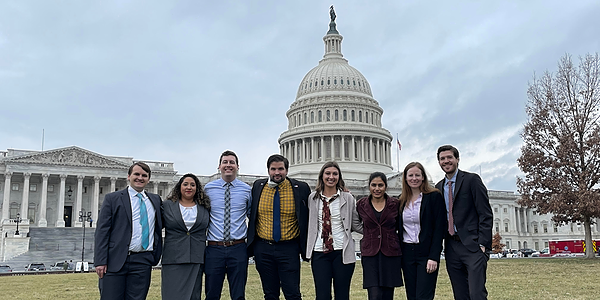|
Dear John,
As we reflect on the state of our republic two years after the attack on the Capitol, and with a Speaker of the House only chosen after 15 rounds of voting, the need to fix our elections is as clear as ever. We remain deeply polarized and our winner-take-all elections – where losing can lock you out of representation for years – heighten the stakes at this fraught time.
Yet there’s also a lot to give us hope. As reported in our review of ranked choice voting in 2022, more than 100 elections across the country used RCV in 2022, and three million Americans had access to RCV ballots. Six state legislatures passed bills with pro-RCV provisions (including Hawaii for congressional vacancies), eight cities and states passed RCV ballot initiatives, and two more localities adopted RCV via ordinance. RCV bills are already being introduced in legislatures around the country for their 2023 sessions.
In December, Congress passed the biggest reform in generations to the Electoral Count Act – the law that governs the process by which Congress counts and certifies electoral votes. The changes make it harder for members of Congress to object to a state’s submitted Electors, and clarify that the Vice President’s role in the process is solely ceremonial. These changes may discourage future attempts to block Congress from counting electoral votes. In the lead-up to the reform’s passage, FairVote and other good government groups wrote extensively about the bill and advised lawmakers on how it should be structured. (And we expressed our solidarity with Brazilian leaders combatting attacks on its democratic institutions over the weekend) |
|
|
|
|
 | What's happening at FairVote?
On the first day of the new Congress, FairVote staff members went to Capitol Hill to welcome new representatives, reconnect with returning ones, and talk about why ranked choice voting is the nation’s fastest growing nonpartisan election reform. It was a great opportunity to start conversations about the RCV legislation we anticipate this year, including the reintroduction of the Fair Representation Act and Voter Choice Act, and build on the momentum of House Democrats nearly enacting RCV for their internal leadership elections. |
|
|
|
Plurality chaos in the House of Representatives
As we walked through the halls of Congress, signs of frustration were evident everywhere. Staffers and Members-elect alike were unsure how the day would end, fearing that no candidate for Speaker of the House would reach the majority of votes required to win. In round after round of voting, the votes were split among three or more candidates, keeping every candidate below the magic number of 218 votes.
As the New York Times and others have reported, without a Speaker, the House of Representatives is unable to function. Federal law says that electing a Speaker must be the first business of each new House, before Members can move on to any other business or even swear their oaths of office. If a national crisis occurred while Speaker votes dragged on, the House would likely have been unable to act until Members found a consensus pick. Members even struggled to provide services to their constituents, since they couldn’t receive key briefings and information from government agencies. |
|
|
|
|
The whole process seemed to be making the case for ranked choice voting for picking the Speaker - a change only requiring a new chamber rule, not a law. By allowing Members to indicate their second and subsequent choices upfront, RCV would let the House determine who the most widely acceptable candidate is quickly – perhaps requiring RCV after a certain number of rounds fail to produce a majority winner. Gone would be the specter of Congress being paralyzed for days before choosing a leader.
New advocacy opportunities in states and cities
After strong votes of support from their governing body, two cities are scheduled to vote on RCV in March – Redondo Beach, CA and Burlington, VT (with Vermont’s biggest city deciding whether to extend use of RCV from city council elections to all elections). We also have a growing number of state legislatures debating RCV legislation, with our advocacy team deeply involved in partnering with others in support of several of these bills - stay tuned for more news in our next update.
Remembering Lani Guinier
We would like to lift up long-time supporter Lani Guinier, the Harvard law professor and voting rights champion who passed away one year ago. A visionary thinker on representative democracy and personal friend, Lani was one of America’s strongest advocates for civil rights and a fair method of proportional voting. In 2017, she was a winner of FairVote’s Champion of Democracy Reward, and she made our reform movement stronger. |
|
|
|
|
My deep gratitude to the many of you who made a donation to FairVote and/or FairVote Action last year. We had our best year ever for revenue, and are poised to grow our staff team to a record high number – we literally couldn’t do this without you.
All best for the new year,
Rob Richie
FairVote President and CEO
|
|
|
|
|
|
| |
|